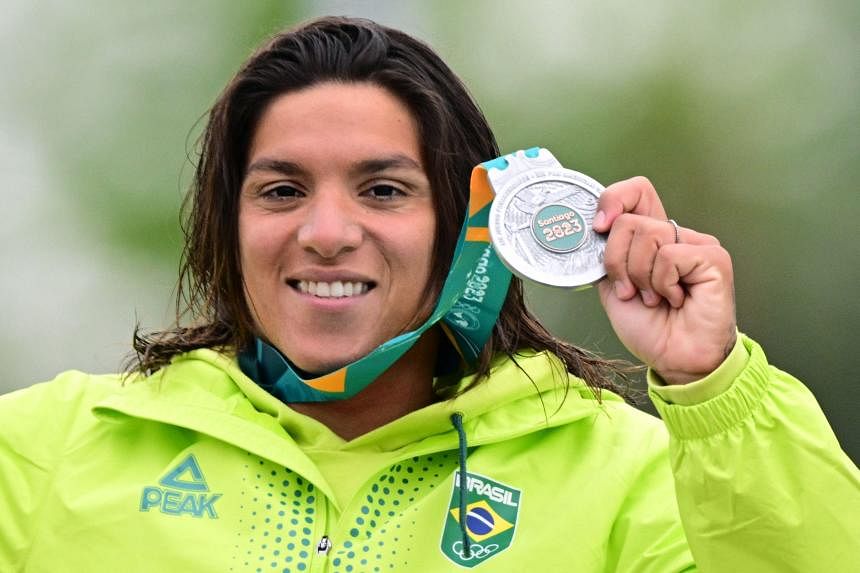RIO DE JANEIRO – Brazilian swimmer Ana Marcela Cunha, the reigning Olympic open water champion, has called on organisers of the 2024 Paris Games to draw up a Plan B in case events cannot be held in the Seine due to poor water quality.
Last August, the marathon swimming test events were cancelled because the water was too dirty, as were the swimming legs on two of the four days of triathlon and para-triathlon tests.
Organisers have insisted “there is no Plan B” but the Brazilian called for a rethink.
“It’s a concern,” Cunha said on the sidelines of a competition on Rio de Janeiro’s Copacabana beach.
“There was no test event last year because of this but (the organisers) insist on wanting the events to take place there.
“We need a Plan B in case it’s not possible to swim in the Seine,” she said, adding that difficulties in swimming in Paris were linked to an “infrastructure” problem.
“The Seine is not made for swimming,” she said.
The organisers have deliberately chosen a route for the men and women’s 10km events that will showcase the beauty of the city.
But Cunha, 31, believes that is secondary to the health of the athletes.
“It’s not a question of erasing the history of the Seine,” she said. “We know what the Pont Alexandre-III and the Eiffel Tower represent but I think that the health of the athletes must come first.
“The organisers must accept that perhaps it will, unfortunately, not be possible to hold the events where they want to.”
With less than five months to go before the opening ceremony on July 26, the water quality of the Seine continues to give organisers sleepless nights.
French authorities have spent €1.4 billion (S$2 billion) upgrading sewage and storm water treatment facilities in the Paris region to improve the water quality of the Seine as well as its major tributary, the Marne.
Analyses carried out from 2015 to 2023, available via the Paris City Council, however, show wide variations last summer, with several peaks in the concentration of two bacteria indicative of faecal contamination.
From June to September 2023, none of the 14 water sampling points in Paris matched the quality level set by European directives.
The staging of the swim events in the two rivers is supposed to be one of the great legacies of the Olympic and Paralympic Games, with French President Emanuel Macron and Paris Mayor Anne Hidalgo both promising to take a dip.
Cunha, however, said there was a “before and after” when it came to water quality.
“On the day of the competition, there’s not much to do. But afterwards, once you’re out of the water, you can fall ill a fortnight later,” she said, tying the problems with the broader concerns facing the environment.
“Everything is linked to the way we treat nature, everyone has to play their part,” she said, citing plastic pollution of the seas. AFP

